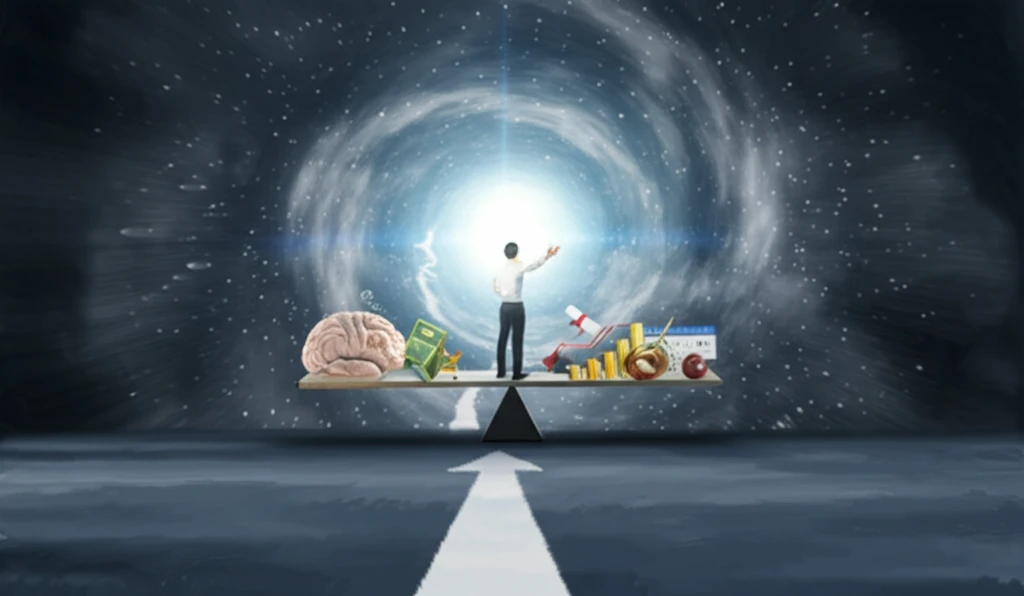
Unlock Your Potential: How Reasoning and Experience Shape Optimal Behavior
"Discover the powerful interplay between abstract thought and real-world encounters in achieving your best self."
We all strive to make the best decisions, whether it's in our careers, finances, or personal lives. But how do we actually learn to make optimal choices? For years, researchers in both economics and cognitive science have been exploring this very question, recognizing that we learn through two primary channels: reasoning and experience. Reasoning involves thinking abstractly and deliberating on potential outcomes, while experience comes from observing the results of our past actions.
Imagine you're trying to decide whether to invest in a new stock. You could spend hours researching the company, analyzing market trends, and weighing the potential risks and rewards – that's reasoning. Or, you could simply observe how similar stocks have performed in the past and base your decision on those outcomes – that's experience. Both approaches offer valuable insights, but they also have limitations. Reasoning can be time-consuming and may not always reflect real-world complexities, while experience is limited to what you've already encountered.
Now, a new framework is emerging that combines the strengths of both reasoning and experience to help us understand how we can truly optimize our behavior. This approach, drawing on insights from reinforcement learning (a field within artificial intelligence), suggests that the key lies in recognizing and managing the uncertainty inherent in our decision-making process.
The Power of Combining Reasoning and Experience

The core idea is that we don't always have perfect information. We face subjective uncertainty about the best course of action. Think of it like this: you might have a hunch about which marketing strategy will generate the most leads, but you can't be 100% sure until you actually try it. This uncertainty influences how we learn and adapt.
- Reasoning: This involves internal deliberation and mental simulations. It helps us form initial beliefs and understand potential outcomes, but it comes at a cognitive cost.
- Experiences: These are the observed outcomes of our past actions. They provide valuable feedback that refines our beliefs and helps us adapt to new situations.
- Uncertainty: This is the subjective feeling of doubt we have about our beliefs. It influences how much we rely on reasoning versus experience.
Putting It All Together: Practical Implications
So, what does this all mean for you? The key takeaway is that learning to make optimal decisions is a dynamic process that involves balancing reasoning and experience. By recognizing and managing your uncertainty, you can become a more effective learner and decision-maker. Embrace both abstract thought and real-world feedback, and you'll be well on your way to unlocking your full potential.
